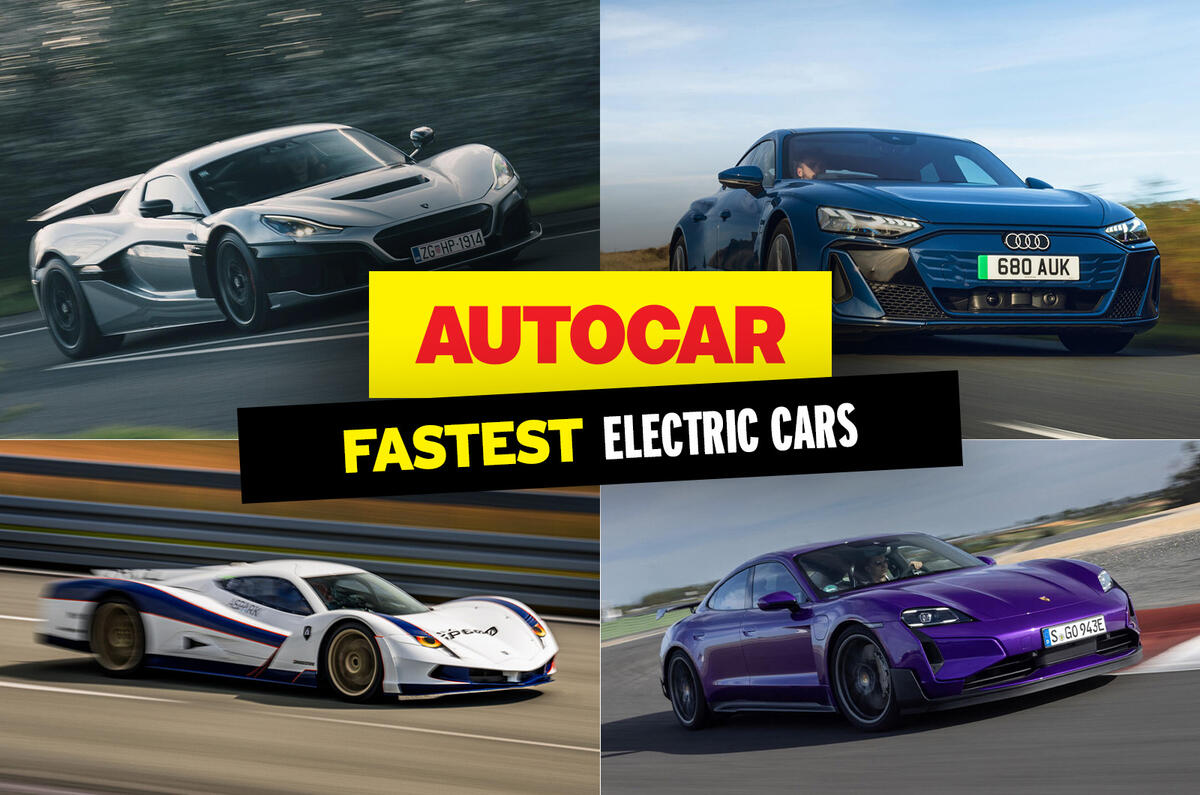When electric cars first launched into the mainstream, they utilised early technology and didn’t exactly push the boundaries of performance.
The likes of the Peugeot iOn and Citroën C-Zero, launched in 2009, were a sign of things to come, but they were notoriously slow (both to drive and to charge).
Things have come a long way since then and some electric cars have risen into the upper echelons to become the world’s fastest cars.
Now, the latest generation of battery-powered hypercars is banishing all memories of bumbling milk floats and the weedy G-Wiz.
They smash speed records and ace acceleration tests, and it’s not hard to see why they deliver their devastating performance. Electric motors are powerful and compact and deliver all their torque instantly for an unrivalled response.
Some of these cars have as many as four eclectic motors, each finely controlled which allows for the precise pouring of power so that not a single horsepower is wasted. What’s more, new lithium-ion batteries feature sophisticated thermal management systems that allow them to deliver their full potential all the time.
But which is the fastest electric car yet? The car that officially holds that accolade is the Rimac Nevera. It hits 0-62mph in a staggering 1.8sec, so blink and you’ll quite literally miss it.
This list features ten of the world’s fastest electric cars, with game-changing technology from Lotus, Porsche and Lucid, plus a few surprise inclusions… So read on, and hold on to your hats…
Japan’s nascent electric hypercar company has wasted no time in staking its claim to the title of ‘world’s quickest car’. It is without question one of the fastest cars ever built.
It set two world records in 2023, completing an eighth of a mile at an average speed of 192.03mph (309.02kph) and the quarter mile at an average speed of 198.12mph (318.85kph).
Roll on November 2024, where it achieved a Guinness world record for the fastest battery-powered electric prototype hypercar in the world, hitting a top speed of 273 miles per hour.
Powered by four electric motors with a staggering combined output of 1985bhp, the Owl has already rattled off the 0-60mph sprint in 1.72sec, and its creators reckon there’s the potential to shave a further few tenths from this figure.
Its specially developed 64kWh battery gives a claimed range of 280 miles. Aspark plans to build just 50 examples of the Owl, each priced at a cool £2.5 million.







Join the debate
Add your comment
The title is: The fastest electric cars, and the list describes them as such. I understand you are disappointed, there is no noise, no manual gearbox, no double declutching. OH DEAR!!
Yawn....... this is not what EV's are about.
If they are supposed to 'save the planet', then depleting a battery in short order whilst accelerating like a dragster is hardly acheiving the aim.
I also seriously doubt the credentials of many of the wealthy individuals buying these 'one trick ponies', to actually be able to control these things. So @ Dezzn, I quite agree, how will Insurance companies view them?
The title is: The fastest electric cars, and the list describes them as such. I understand you are disappointed, there is no noise, no manual gearbox, no double declutching. OH DEAR!!
No interest in EV's whatsoever apart from that I'm curious to know how the insurance companies view these extremely fast vehicles. I can remember that in my youth anything with a sub 10 sec 0-60 time attracted a punitive premium!